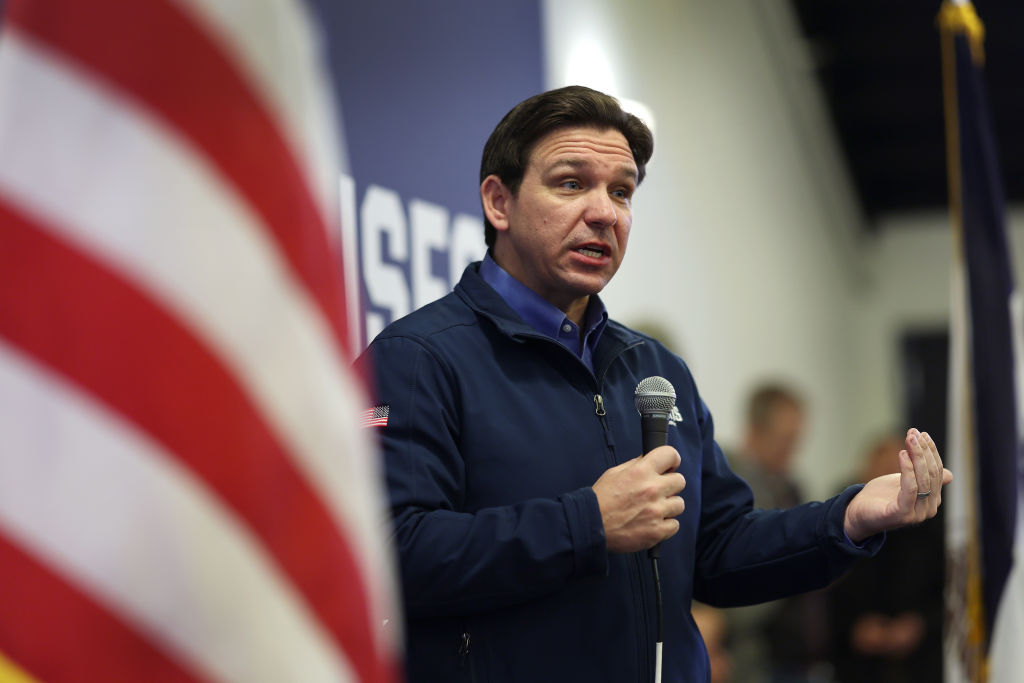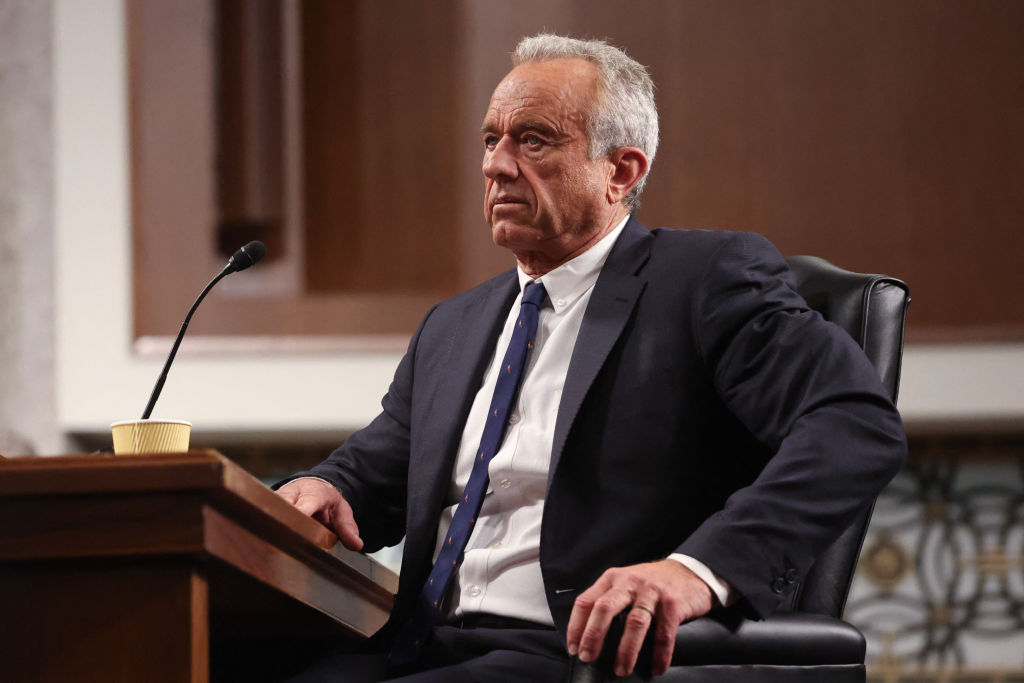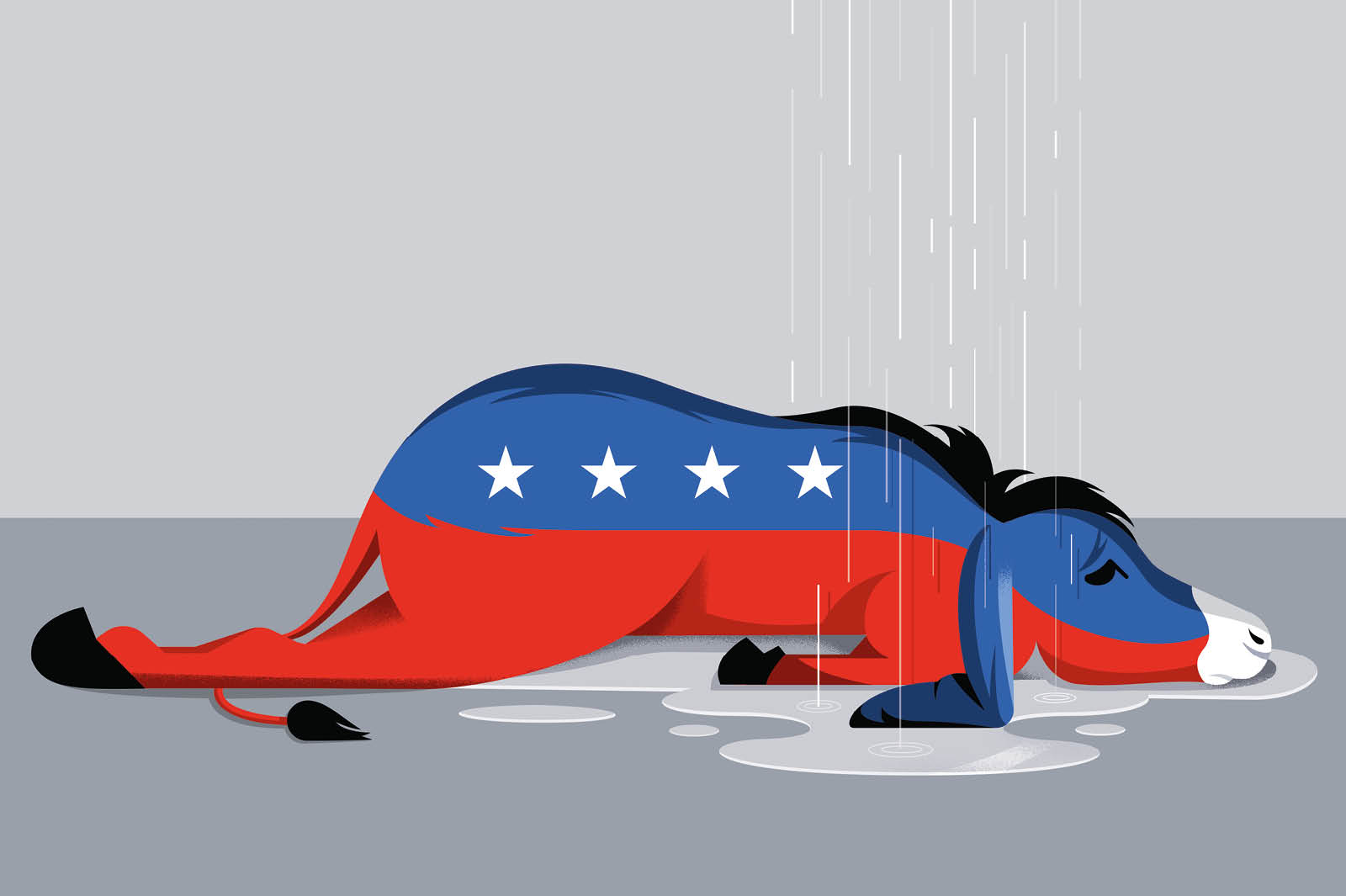In the salad days of early 2023, when Ron DeSantis was the clear insurgent candidate to wrest the GOP nomination from Donald Trump, the Florida governor boasted of his ability to rise above the chaos and office politics that had derailed the populist agenda under Trump’s watch. “In terms of my approach to leadership, I get personnel in the government who have the agenda of the people and share our agenda. You bring your own agenda in, you’re gone,” DeSantis said. “The way we run the government, I think, is no daily drama, focus on the big picture and put points on the board.” He has since dropped that line; it’s been too obviously overtaken by actual events.
Sure, DeSantis would be the nominee if Trump were hit by a bus (at least before he got around to naming Nikki Haley as his running mate), but that’s cold comfort given that his campaign staff and outside consultants have already taken to backbiting in the New York Times, where Maggie Haberman and friends dropped a more-than-3,700 word Christmas Eve surprise in an article anatomizing his campaign’s missteps and internal dissension.
Despite its [festive] timing, though, the article wasn’t much of a surprise to the “current and past advisors to Mr. DeSantis and his allied groups,” who felt bold enough to speak to the Times by the dozens. It’s enough to make a man yearn for the days of Governor Scott Walker’s doomed presidential campaign, which ended abruptly on September 21, 2015 — a whole business-day-and-a-half before Politico ran the story of what went wrong, hand-guided by Walker’s own campaign manager. Back then, staff waited until the corpse was cold to pick through its guts.
One happy soul from DeSantis world, who didn’t speak to the Times, offered to escort The Spectator through the catfight and unmask all the barely disguised anonymous sources name by name, but the exercise seems unnecessary. Every detail in the Times autopsy is so boring it must be true.
They let him fly private too often!
His micromanaging buddies on the board don’t know what they’re doing!
The PAC overspent, and in all the wrong places!
The tedium is the message. We all know dirty laundry because that is the way of campaigns and their consultants in the twenty-first century. Former DeSantis campaign honcho Jeff Roe made his name creating oppo files about rival politicians. It was only a matter of time before he and his cohort began making oppo files about one another. Every interaction between top campaign consultants these days is tinged with the knowledge that your teammate is listening closely, the better to talk to Maggie Haberman later.
Campaigns are dirty business. Did you know, for example, that top vendors often go unpaid even at the end of successful runs? Probably not, because if those vendors complained they wouldn’t get any business from the next guy in line for political office. By the spring of 2013, for example, Rudy Giuliani’s campaign still owed more than $1.7 million for his presidential run five years before, and Revd Al Sharpton still owed nearly $1 million for his 2004 bid. And while by 2013 Hillary Clinton had taken care of her massive 2008 debt, her husband, the former president, still owed $100,080 to various campaign consultants and pollsters (and not for a lack of cash). You can almost forgive campaign consultants for dropping the barriers of propriety and loyalty that once contained their profession.
It began in the early Nineties, when a documentarian who’d spent his career glamorizing the 1960s cast his eye toward glamorizing a new class of heroes: Democratic politicians and the liberal staffers who helped them win. “In the 1960s, D.A. Pennebaker… captured the legends of rock ’n’ roll,” begins the cringe-inducing trailer for 1993’s War Room. “Now, D.A. Pennebaker and Chris Hedges bring us the making of the first president from the Rock ’n’ Roll Generation.”
Pennebaker and his wife were rewarded with an Oscar nomination from their friends in LA. America was punished with James Carville and George Stephanopoulos. No more were consultants mere anonymous millionaires — in the age of twenty-four-hour-news, they formed a new class of highly paid nerds that plagues us into the current day.
Mark Halperin and John Heilemann continued the trend with their 2010 book Game Change, which eventually became a movie about these types of guys. When asked about a film that made so many of his colleagues look terrible, notorious campaign loser and former John McCain campaign manager Steve Schmidt had largely nice things to say. One “private” conversation between his movie character (played by Woody Harrelson) and the senator (played by Ed Harris), he told Entertainment Weekly, was “almost verbatim.” Wonder how.
The list of self-important consultants chasing stardom metastasized in recent years: David Axelrod, David Plouffe, Jim Messina, Stephanie Cutter, those Obama bros, you know the ones, and whatever their podcast is called. By the time Robby Mook took over the Clinton ’16 campaign, we were forced to follow the inside workings of campaigns rather than getting a good look at policy — instead we got process: “Hillary’s secret weapon” and the “Mook mafia.” It’s the sort of culture that makes stars (and money), but by and large not the sort that breeds trust and discretion.
And as 2023 limped offstage, just days before his first primary contest, we get the lowdown and dirty on just how nasty and dysfunctional it got inside DeSantis World. And we know it because everybody blabbed. That’s an ugly campaign truth right there, and it doesn’t reflect well on anyone. As primary voting gets underway, only expect more self-exculpating “inside looks” and “tell-alls” and “autopsies” to follow, as six-figure consultants move on from their current paychecks to the six-figures that await them in the general election.
“Want to know why people are airing out the dirty laundry?” one former DeSantis World veteran told The Spectator. “No loyalty.”
How positively modern of us.
This article was originally published in The Spectator’s February 2024 World edition.


























Leave a Reply